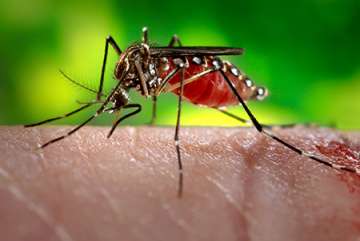There have been around 260 cases of Microcephaly in India since February 2016. The Health Ministry did not test the babies for the virus citing shortage of laboratory capacity while investigating to study the link between the condition and Zika virus. A three-month-old baby was detected with severe microcephaly tested negative for Zika. This was the first case since 2015-16 where the Ministry ran blood work for Zika to break global outbreak. It is a rare congenital defect which leads to incomplete growth of a baby’s brain. The baby’s head is much smaller than what is normal for its age.
The Ministry officials said that the tests that was necessary to investigate the virus and microcephaly are not being carried out due to lack of laboratory strengths. 55 countries in the country was set up under surveillance after the declaration of Zika as a Public Health Emergency of International Concern (PHEIC) by WHO in February 2016.
Dr Ajay Khera, Deputy Commissioner for Child Health, Health Ministry, said, “We could not check any of the cases for link with Zika because the programme had not evolved to that point. We will start checking microcephaly cases for Zika links from now.”
A baby can be affected by severe microcephaly if his brain has not been developed during pregnancy or because it was damaged during pregnancy. Based on available evidence, the WHO has said the most likely explanation is that Zika virus infection during pregnancy causes microcephaly. The Health Ministry started tracking cases of microcephaly in India in February 2016, after the World Health Organization (WHO) requested countries to track and report cases.
Dr. Soumya Swaminathan, Director General of Indian Council of Medical Research (ICMR), said that aetiology testing, investigation to establish the cause of the condition, of these babies was not done because laboratories were not available. “We don’t have baseline data for microcephaly. The government has only recently started collecting data on congenital birth defects. When we found cases of microcephaly, we could not test them for causes as labs were not available,” she added.
Dr. P.Ravindran, Director, Emergency Medical Relief (EMR), Health Ministry, further said, “The Indian government set up 55 sentinel sites across India. Over the year, we found sporadic cases, but without clustering.”

